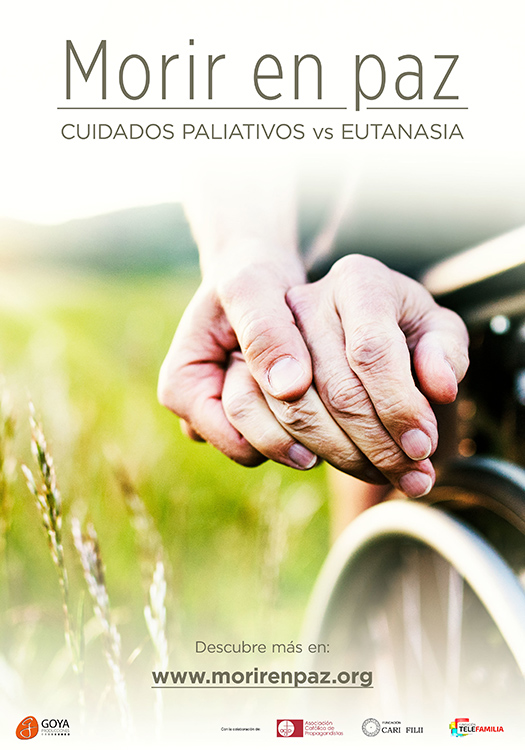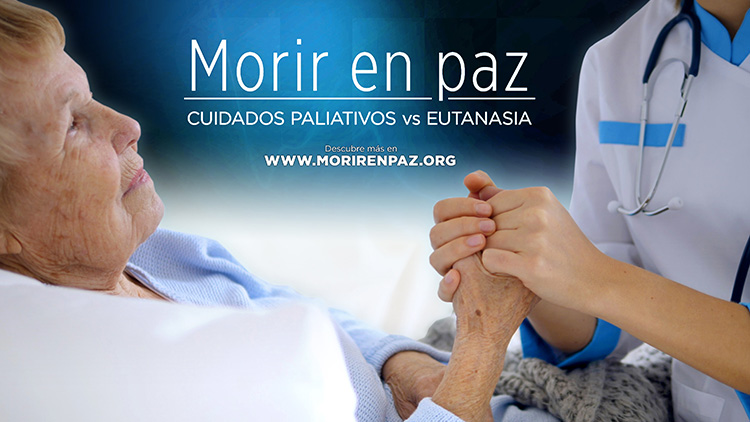Everyone wants to die in the best possible way, surrounded by the love and care of others. When people feel loved, they do not want to end their lives. This is reflected in "Dying in peace, Palliative vs Euthanasia", the documentary by Goya Productions which shows the truly dignifying option for the terminally ill: palliative care.
The documentary, "Dying in peace, Palliative vs Euthanasia".,which can be seen from the next October 21 totally free of charge on the web www.morirenpaz.org for all the Spanish-speaking countries, it gathers the testimonies of nurses, family members, doctors and volunteers who accompany the sick in those last moments. It also shows the setback that would result from the legal opening to euthanasia, such as the one to be carried out in Spain, which opens the door to abuses in this field and underlies an economicist vision of life in which the dignity of the person does not really fit.
Palliative care, real progress
"Almost all those who ask for euthanasia what they really want is to have their pain removed, ignoring that today there are means to eliminate suffering without eliminating the sufferer."This is the doctor's statement Marcos Gómez, with a long professional experience, this is also the understanding of the Dr. Alvaro Gándara which emphasizes that palliative care is the civilized and progressive way society has the obligation to care for the weak and not to eliminate them.
Giving value to life

The documentary, made in collaboration with the ACdP, the Telefamilia Foundation and the Cari Filii Foundation, comes to the screens at a time when various political forces in countries such as Spain are seeking not only to decriminalize euthanasia but to elevate it to the status of a law. A project that has received the rejection, among others, of the Spanish Bioethics Committee which has warned the Spanish government that "legalizing euthanasia and/or aid to suicide means starting a path of devaluation of the protection of human life whose borders are very difficult to foresee, as the experience of our environment shows us." and, on the contrary, he is in favor of "the protocolization, in the context of good medical practice, of the use of palliative sedation"..








